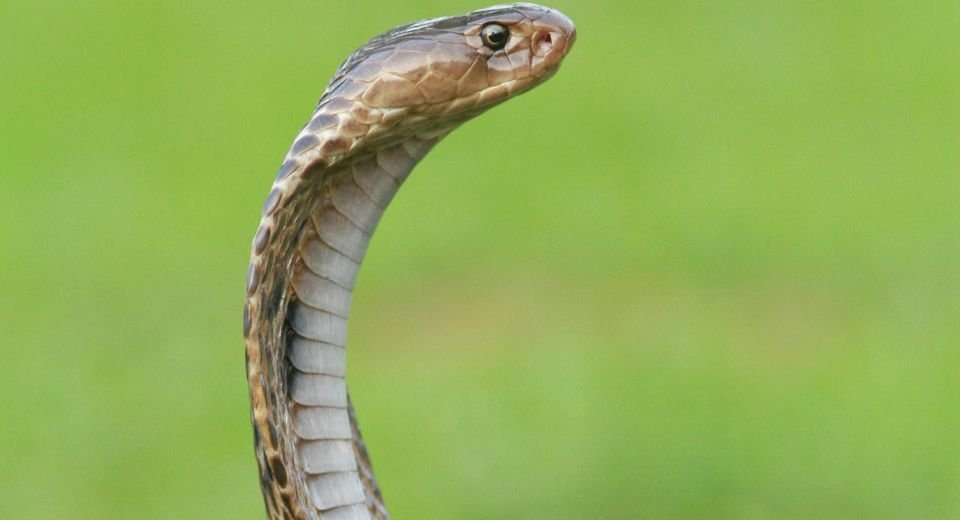HQ Team
February 23, 2024: A single universal shot of antivenom for snake bites is not far away after scientists found a potent antibody to neutralise neurotoxins from four deadly species found in Africa, Asia and Australia.
A team of scientists conducted tests on 100 billion human artificial antibodies at the California-based Scripps Research lab. The aim was to identify the one antibody that could block the toxin’s activity.
The billions of antibodies in the lab represented a far bigger collection than the immune system of any animal exposed to snake venom could come up with.
“It’s a needle in a very large haystack,” said Joseph Jardine, an expert in protein engineering at Scripps Research.
Synthetic version
First, Jardine’s global team worked on lab-grown cells to produce synthetic versions of a key ingredient of many snakes’ venom, known as long-chain three-finger alpha-neurotoxins (3FTx-L).
These toxins cause paralysis by shutting down nerve cells’ ability to respond to a key neurotransmitter. 3FTx proteins are responsible for whole-body paralysis, making them an ideal therapeutic target
After identifying about a dozen antibody candidates the scientists tested how well they protected human cells from the toxin from many-banded krait, Indian spitting cobra, black mamba and king cobra.
An antibody dubbed 95Mat5 had the best performance.
To find out whether 95Mat5 protected animals, Sunagar’s team injected groups of five mice with a normally lethal dose. All of the mice survived.
Targeting a single toxin
“If you had asked me 6 years ago, I would have said that you’d be out of your mind to think that you can neutralize a snake venom by targeting just one toxin,” said Kartik Sunagar, head of the evolutionary Venomics Lab at the Indian Institute of Science.
Currently, snake venoms are a mix of dozens or even hundreds of compounds that target nerve cells, blood clotting, or tissues, killing an estimated 81,000 to 138,000 people around the globe annually and disabling hundreds of thousands more.
The standard treatment is antivenoms, a cocktail of antibodies harvested from horses or sheep injected with nonlethal doses of the venom.
Although these drugs save lives, “antivenoms suffer from numerous problems,” said Sunagar of the Indian Institute of Science, who is the lead author of the study.
For one thing, snake venoms vary a lot between species, which means that treatment depended on which species has bitten you—which is not always known.
Many antivenoms were made to work against several snakes from the same region, which meant they were relatively weak against one another, Sunagar said.
Adverse immune reactions
As these drugs were made from animal proteins, they could cause adverse immune reactions, including life-threatening anaphylaxis. That’s why doctors often wait until a snakebite patient develops symptoms before administering antivenom.
An estimated 5.4 million people worldwide are bitten by snakes each year with 1.8 to 2.7 million cases of poisoning by venom being reported, according to the WHO.
About 81, 410 to 137,880 people die each year because of snake bites, and around three times as many amputations and other permanent disabilities are caused by snakebites annually.
Bites by venomous snakes can cause paralysis that may prevent breathing, bleeding disorders that can lead to a fatal haemorrhage, irreversible kidney failure and tissue damage that can cause permanent disability and limb amputation.
Agricultural workers and children are the most affected. Children often suffer more severe effects than adults, due to their smaller body mass.
Low, middle income nations
Snakebite occurs primarily in low- and middle-income countries and is a neglected health problem, and it’s not clear who would fund the antibody’s further development and production.
“The next steps are probably more driven by economy, strategic decisions, and health care systems’ priorities than they are by science and technology,” said Andreas Hougaard Laustsen-Kiel, of Denmark’s Center for Antibody Technologies.
The toxinologists hope to create a cocktail of antibodies that neutralises the venoms from every dangerous snake on the planet.
“You’d no longer have to stock hundreds of antivenoms,” Jardine said. “You could stock a single universal one.”
